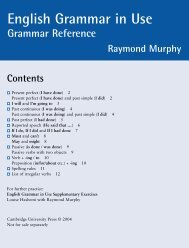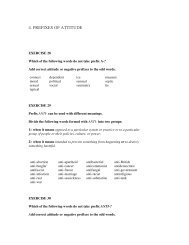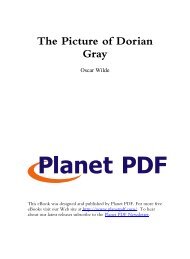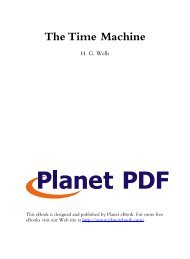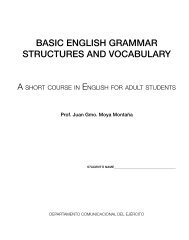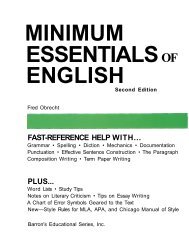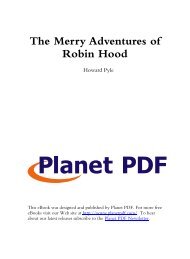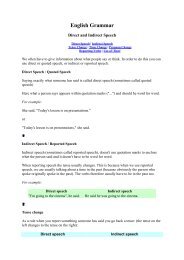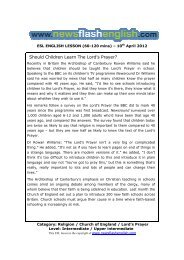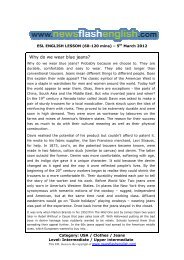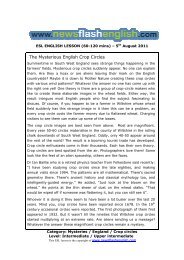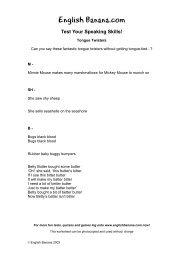A Grammar of the English Tongue - ESL Teachers Board
A Grammar of the English Tongue - ESL Teachers Board
A Grammar of the English Tongue - ESL Teachers Board
Create successful ePaper yourself
Turn your PDF publications into a flip-book with our unique Google optimized e-Paper software.
A <strong>Grammar</strong> <strong>of</strong> <strong>the</strong> <strong>English</strong> <strong>Tongue</strong> 51acts, but less subtile by reason <strong>of</strong> <strong>the</strong> clearer vowel a, is indicated in jangle,tangle, spangle, mangle, wrangle, brangle, dangle; as also in mumble,grumble, jumble. But at <strong>the</strong> same time <strong>the</strong> close u implies somethingobscure or obtunded; and a congeries <strong>of</strong> consonants mbl, denotes aconfused kind <strong>of</strong> rolling or tumbling, as in ramble, scamble, scramble,wamble, amble; but in <strong>the</strong>se <strong>the</strong>re is something acute.In nimble, <strong>the</strong> acuteness <strong>of</strong> <strong>the</strong> vowel denotes celerity. In sparkle, spdenotes dissipation, ar an acute crackling, k a sudden interruption, l afrequent iteration; and in like manner in sprinkle, unless in may imply <strong>the</strong>subtilty <strong>of</strong> <strong>the</strong> dissipated guttules. Thick and thin differ in that <strong>the</strong> formerends with an obtuse consonant, and <strong>the</strong> latter with an acute.In like manner, in squeek, squeak, squeal, squall, brawl, wraul, yaul, spaul,screek, shriek, shrill, sharp, shrivel, wrinkle, crack, crash, clash, gnash,plash, crush, hush, hisse, fisse, whist, s<strong>of</strong>t, jar, hurl, curl, whirl, buz, bustle,spindle, dwindle, twine, twist, and in many more, we may observe <strong>the</strong>agreement <strong>of</strong> such sort <strong>of</strong> sounds with <strong>the</strong> things signified; and this s<strong>of</strong>requently happens, that scarce any language which I know can becompared with ours. So that one monosyllable word, <strong>of</strong> which kind arealmost all ours, emphatically expresses what in o<strong>the</strong>r languages can scarcebe explained but by compounds, or decompounds, or sometimes a tediouscircumlocution.We have many words borrowed from <strong>the</strong> Latin; but <strong>the</strong> greatest part <strong>of</strong><strong>the</strong>m were communicated by <strong>the</strong> intervention <strong>of</strong> <strong>the</strong> French; as, grace, face,elegant, elegance, resemble.Some verbs which seem borrowed from <strong>the</strong> Latin, are formed from <strong>the</strong>present tense, and some from <strong>the</strong> supines.From <strong>the</strong> present are formed spend, expend, expendo; conduce, conduco;despise, despicio; approve, approbo; conceive, concipio.From <strong>the</strong> supines, supplicate, supplico; demonstrate, demonstro; dispose,dispono; expatiate, expatior; suppress, supprimo; exempt, eximo.




